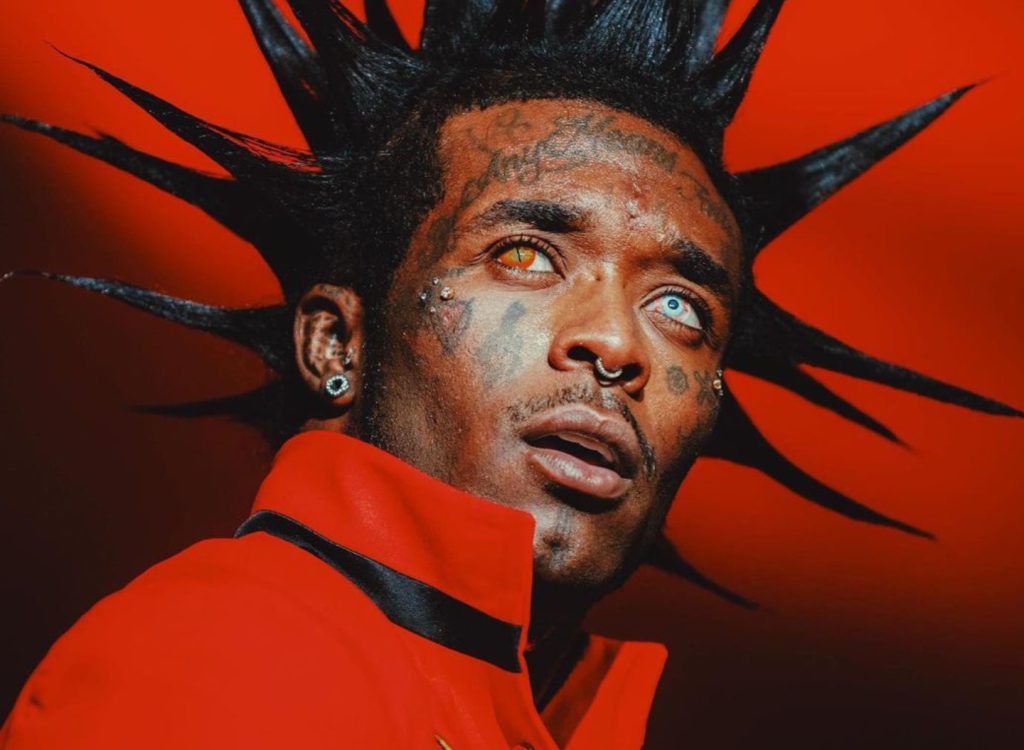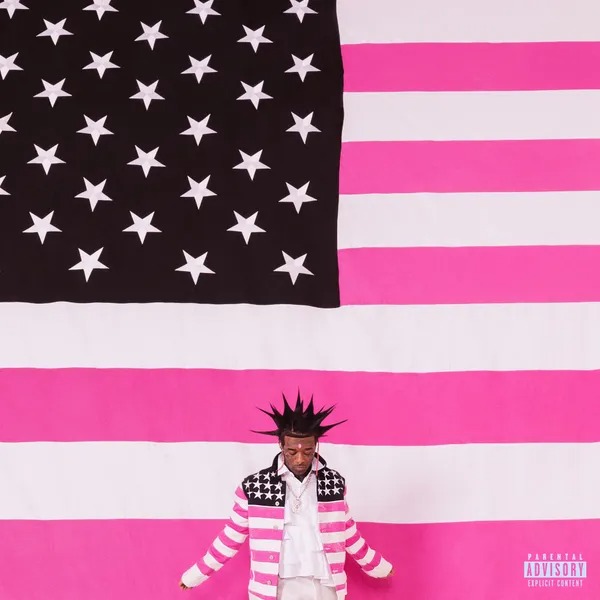LIL UZI VERT’S QUEST FOR AMBITION & INNOVATION FALLS SHORT ON ‘PINK TAPE’

The reality is that this is when Lil Uzi Vert is most at their finest. They are recognized for their unique charm, whimsically melodic flows, and unflinching ability to never overthink the construction of their tunes. In their peak, they effortlessly released songs laced with R-rated flexes delivered in cartoonish cadences that connected with a youthful audience in the midst of a mainstream Hip-Hop style that was constantly evolving. These qualities along with the fact that popular music at the time thrived in improvisation and effortless experimentation in Uzi’s peak years, which are already a few years behind us, helped them attract their audience. Uzi seems reluctant to move on even if time has passed.
They appear to enjoy the oppressive pressure that comes with eventually releasing a major record that has been excessively hyped and built up. Uzi seems to think that the hype works in their favor on their last two solo full-lengths, 2020’s Eternal Atake and now, the eagerly awaited Pink Tape. However, Pink Tape demonstrates once again that the pressure results in a sprawling, unfocused offering from an artist who obviously has the potential to deliver enticing music but struggles to package it together.
Pink Tape only partially succeeds in demonstrating Uzi’s potential as the ground-breaking artist they set out to be, despite becoming the first Hip Hop album to hit No. 1 this year and ending the genre’s longest gap of chart-topping recordings since 1993. It’s strange to think back on how they came to choose these particular songs after listening to the 26 tracks of Pink Tape and remembering that DJ Drama earlier this year said Uzi had 680 songs finished and in the running for inclusion. The majority of the remaining tracks are the product of unsuccessful experiments that rely too much on their external inspirations to be intriguing on their own, especially considering that the first quarter of the tracklist is filled with surface-level expansions of Uzi’s earlier work.
Uzi draws on a broad range of musical styles over Pink Tape’s 26 songs, including nu-metal (“CS”), fury (“Aye”), futuristic trap (“Suicide Doors”), and even pop (“Endless Fashion,” “Mama, I’m Sorry”). However, the end effect is a wildly disorganized album that lacks consistency and organization. They are an outsider with a wide range of musical tastes who is frequently misunderstood and ahead of their time in Uzi’s world. The fact is that they fall short of effectively integrating everything into a flushed-out project.

The album’s left-field audio textures and scattered jewels are perhaps its most interesting features, but Uzi’s performances ultimately fall short of the expectations. The majority of the highlights are seen in the first half. With the use of some fascinating hyper-melodic flows and designer fashion allusions, Uzi and Nicki Minaj interpolate the infamous dance/electronic smash “Blue (Da Ba Dee)” by Eiffel 65 for their song “Endless Fashion.” With the help of Gotye & Kimbra’s “Somebody That I Used to Know” interpolation, “Mama, I’m Sorry” by Uzi reflects on an out-of-body experience brought on by a combination of drugs. This track stands out in a way that not many of the other tracks are able to.
With the use of gnarly guitar loops, gothic superhero allusions, growling adlibs, and baby-like vocal inflections on “Suicide Doors,” Uzi emulates Playboi Carti’s “vamp” aesthetics. “Crush Em”‘s bland, repetitive hook is given much too much time to linger. This song, like with others like “Amped,” “Spin Again,” “x2,” and “Died and Came Back,” has Uzi firing off a barrage of awkward lyrics that, despite their best efforts, fall flat. This is partially explained by the fact that we’ve heard variants of them previously and that they were more likely to attract your attention when youthful Hip Hop fans were enamored with the current genre’s abstract, futuristic sounds.
Due to the album’s ethereal tone, “Patience” featuring Don Toliver slows things down and offers a much-needed musical adjustment, but by this point in the tracklist, it’s nearly too late to rescue the album as a whole. The song “Days Come and Go” offers some much-needed introspection as Uzi discusses issues like their absent father, the need for a confidante, the pressures of fame, and concerns about one’s self. The same is true of the term “Rehab,” which they employ to refer to a significant someone in their lives who assisted them during the rehabilitation process.
On the hook of Travis Scott’s “Aye,” Uzi sings, “My neck is filled with the water / I might just fuck around and take your daughter.” This is a couplet that would have been considerably more impactful in the spacey, haughty SoundCloud rap of 2016, not in this context. Uzi doesn’t even need to write dynamic lyrics, but there are many instances on Pink Tape where at the very least developing his distinctive sound would be advantageous rather than sticking to its outmoded characteristics.
Pink Tape is a blunder, and they’re still trying to generate singles using their prime-era style. It doesn’t matter how many Ice Spice allusions, self-induced “clever” punchlines, or exquisite vocal delivery they utilize. Although the sound has shown to be relatively easy to imitate (as seen by the recent influx of Soundcloud rappers), it appears the original creator is finding it tough to move the genre beyond the clichés he helped create.
Pink Tape is a rambling listening experience that never quite settles in and strives to be too much at once without spending much time providing any depth. Uzi’s reputation is still in jeopardy as long as they keep churning out singles to distract their audience from the assault accusations made by their ex-girlfriend, as well as their ongoing struggles to produce quality work.
Pink Tape is admirable for its attempt to experiment with many sounds, but these influences are eventually dispersed randomly across the album, leading to a bloated offering from one of Hip Hop’s most convoluted but ambitious firestarters.



